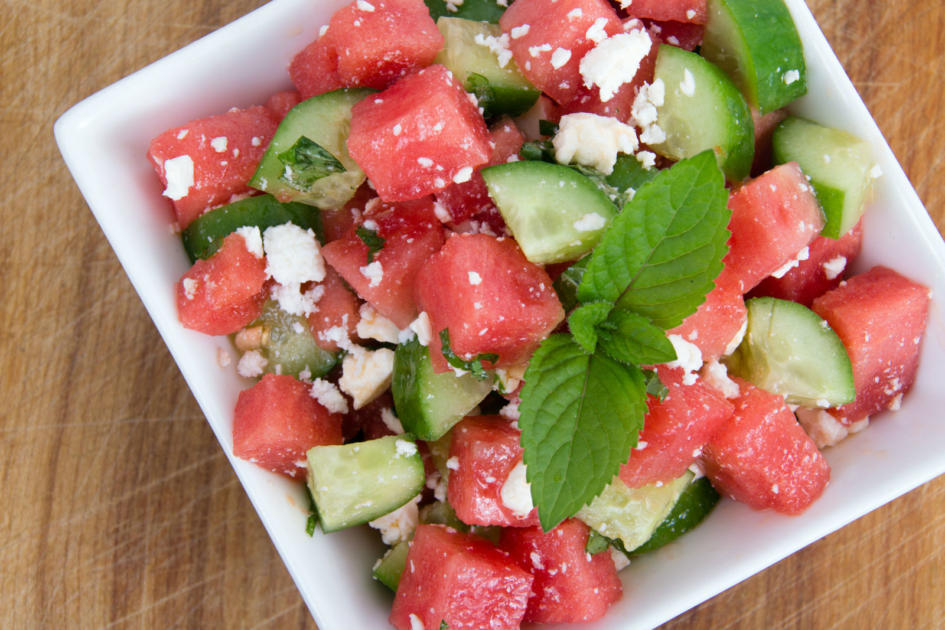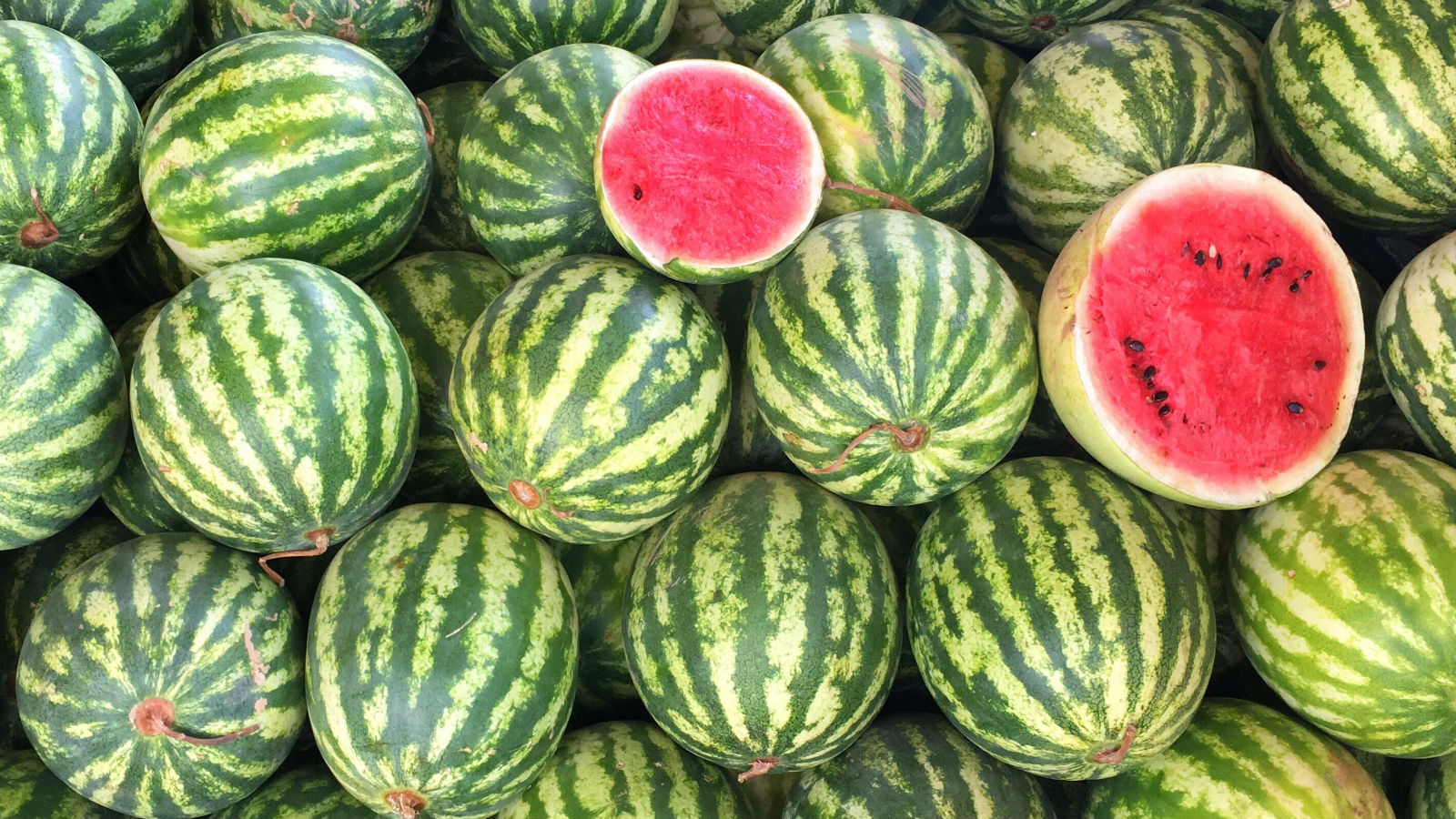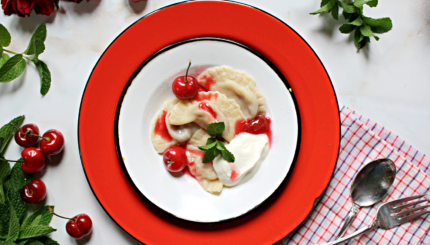Growing up in England, I ate watermelon fairly regularly, though less for the taste and more for its matchmaking abilities. My sisters and I would play a game, borrowed from a Judy Blume novel, where we’d stick three black seeds onto our foreheads, name each of them after a boy, and wait for them to fall. The last seed standing represented the boy we would marry. Back then, I couldn’t comprehend marrying someone who I hadn’t yet met — but that is exactly what happened. He lived in Israel and I moved there to join him.
We settled in Tel Aviv and I quickly became enamored with the Carmel Market. I walked through it a couple of times a week, marveling at the perilously piled fruit, enormous bunches of herbs (how could people get through that much parsley?), and chaotic market stalls. It was an education in locality and culture — I never missed an opportunity to ask the vendors how they would cook something, praying they wouldn’t judge my shaky Hebrew. Fresh almonds appeared as the sea breeze warmed in early spring, pomegranates before the mad rush of Rosh Hashanah, and watermelons at the moment spring gave way to summer.
Spotting the first watermelon or, often, chunk of watermelon — they grow so huge that my uncle, infamously, kept his in a bath full of cold water because it was too big for the fridge — was a sure sign that the city would soon turn horribly humid, tourists would descend, and beaches would be packed.

The Nosher celebrates the traditions and recipes that have brought Jews together for centuries. Donate today to keep The Nosher's stories and recipes accessible to all.
But with an education in seasonal foods, which Israeli excels at, comes a lesson in patience; those first watermelons only looked tempting. In reality, they were scentless, bland, and mushy. I learned that I needed to hold out for a couple of weeks until they were juicy and sweet. Once they were, I went all in, schlepping them back from the shuk (market) in my granny cart like some crazed fruit hoarder. Tupperware filled with chunks of watermelon and feta were as vital as a towel on a trip to the beach; a cooling slice of fruit was the first thing I offered any sweaty, flustered guest.
As the years went on, I started to experiment with watermelon. I added bitter Syrian olive oil, black pepper, and mint to my beach snack. I contentedly spent afternoons julienning watermelon, carrots, cucumbers, and chillies at my kitchen table, then sprinkling on citrusy-salty tajin seasoning that my husband had fallen in love with while living in Mexico. I’d eat the entire bowl sitting by an open window in my underwear because the air conditioning was expensive. One summer, I went through a bottle of fish sauce after discovering that it paired perfectly with watermelon — that salty-sweet combo knows no bounds.

As the beaches emptied and the kids zipping around Tel Aviv on electric bicycles (finally!) went back to school, watermelons were scarcer and more expensive. Limes and quinces took center stage in market stalls but, although I was thrilled with the mojito possibilities, I couldn’t quite let go of watermelon. So I’d use the stragglers for granita, blending the fruit, straining it, and adding confectioners sugar and/or lime if the flavor needed a leg up. It comforted me to know that there was a batch of sunshine in my freezer to extend the summer by a few months. And if I wasn’t strict enough with my granita rationing, well, at least I had limes for mojitos.



